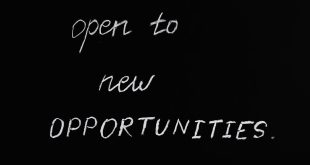It is common to feel disheartened or withdrawn when health conditions show up in our lives. The diagnosis might be long-term or temporary, treatable or only manageable. But whatever the circumstances, it is important to recognize that you still have choices. Many people suffer with both visible and hidden health conditions. This can be difficult, especially when trying to explain to others why you don’t feel good or can’t do something. While managing a condition sensibly and even striving for healing or progress, we should try to continue living a life of fun and joy. This does require taking steps: mentally, emotionally, and physically. And, though, it may not always be easy, it is worth it. Here are 5 tips for minimizing the road blocks that illness can put on your life.
Communicate
 Health conditions, especially the sudden and unexpected onset of one, may create difficulty in communicating feelings or needs. I have even felt guilty about my conditions and how it will affect others. But the reality is, not talking about it can make things worse. It takes a great deal of personal courage to open up to others, trust me, I know. However, communicating our fears, needs, and concerns shows our love and respect for the people around us. It shows that we value their input and want to bring them deeper into our lives.
Health conditions, especially the sudden and unexpected onset of one, may create difficulty in communicating feelings or needs. I have even felt guilty about my conditions and how it will affect others. But the reality is, not talking about it can make things worse. It takes a great deal of personal courage to open up to others, trust me, I know. However, communicating our fears, needs, and concerns shows our love and respect for the people around us. It shows that we value their input and want to bring them deeper into our lives.
Unfortunately, friends and family may struggle to understand. In this case, joining a support group can be a great way to feel less isolated. You hear the experiences of others and could even learn some helpful hints and tips. They can also direct you toward other resources or professional sources of help. Losing perspective or isolation can be devastating to an ill person. Support groups help us to stay communicative and allow us to be inspired and supported by others.
Keep Perspective
 Managing and accepting an illness may be difficult at first, but try to stay focused on things you are grateful for and the love you have in your life. Perhaps you have excellent doctors or nurses. Maybe your family and friends are a great support network. Perhaps you’re in pain but you still have some independence. Remember, there are so many others out there who deal with illness every day. They have to manage seizures, painful treatments, mental illness, or heavy medication. Keep things in perspective and try to feel positive about the level of health you have. You are in control of your choices and you can work on being healthier, no matter what.
Managing and accepting an illness may be difficult at first, but try to stay focused on things you are grateful for and the love you have in your life. Perhaps you have excellent doctors or nurses. Maybe your family and friends are a great support network. Perhaps you’re in pain but you still have some independence. Remember, there are so many others out there who deal with illness every day. They have to manage seizures, painful treatments, mental illness, or heavy medication. Keep things in perspective and try to feel positive about the level of health you have. You are in control of your choices and you can work on being healthier, no matter what.
Be Informed
 Reading about your condition, treatment options, and how others manage it can be very helpful- even if you were diagnosed a long time ago. Research and technology changes rapidly in the medical world. Perhaps you know the conventional approach, but how informed are you about alternative therapies? Are you aware of the resources and support that is available to you? Would you know how to spot worsening symptoms or how your diet or lifestyle affects your condition? It is wise to stay in the loop about new developments. This can help you to feel empowered and make informed decisions.
Reading about your condition, treatment options, and how others manage it can be very helpful- even if you were diagnosed a long time ago. Research and technology changes rapidly in the medical world. Perhaps you know the conventional approach, but how informed are you about alternative therapies? Are you aware of the resources and support that is available to you? Would you know how to spot worsening symptoms or how your diet or lifestyle affects your condition? It is wise to stay in the loop about new developments. This can help you to feel empowered and make informed decisions.
Take Rest Seriously
 While it is true that you shouldn’t let your condition hold you back, rest is essential. Try not to see rest as weakness or an admission of defeat. Rest enables us to recharge and gives the body energy to heal and function. If we push ourselves beyond our limits, we may take longer to recover. Effective rest may take some time out of your day. But it also means the time we are up and about is far more likely to be fun and successful. Be patient and kind to yourself. If you’re struggling to rest or dislike slowing down, think about the advice you would give to a good friend. You might tell him or her to rest and then do the fun activity later! It is important to be a good friend to yourself. Your condition may already be making things more difficult for you. Don’t contribute to it by being hard on yourself, too. Rest well, then return refreshed.
While it is true that you shouldn’t let your condition hold you back, rest is essential. Try not to see rest as weakness or an admission of defeat. Rest enables us to recharge and gives the body energy to heal and function. If we push ourselves beyond our limits, we may take longer to recover. Effective rest may take some time out of your day. But it also means the time we are up and about is far more likely to be fun and successful. Be patient and kind to yourself. If you’re struggling to rest or dislike slowing down, think about the advice you would give to a good friend. You might tell him or her to rest and then do the fun activity later! It is important to be a good friend to yourself. Your condition may already be making things more difficult for you. Don’t contribute to it by being hard on yourself, too. Rest well, then return refreshed.
Don’t Fear Failure
 Whether dealing with a health condition or not, try not to fear failure. Give things a try. Finding that certain activities or changes may not work or are unmanageable is educational. It’s not failure. You can then make more informed decisions about what is suitable in the future. Also, if something hasn’t worked in the past, it doesn’t mean it will never work. Circumstances change and so do we. Worry and fear will prevent you from trying…that is the only way you can fail.
Whether dealing with a health condition or not, try not to fear failure. Give things a try. Finding that certain activities or changes may not work or are unmanageable is educational. It’s not failure. You can then make more informed decisions about what is suitable in the future. Also, if something hasn’t worked in the past, it doesn’t mean it will never work. Circumstances change and so do we. Worry and fear will prevent you from trying…that is the only way you can fail.
**** This post is strictly informational and is not meant to replace the advice of your health care provider. Women’s lifelink, it’s owners, administrators, contributors, affiliates, vendors, authors and editors do not claim that this information will diagnose, treat, or improve any condition or disease.
 Women's Life Link Be Well, Be Happy, Be YOU!
Women's Life Link Be Well, Be Happy, Be YOU!





